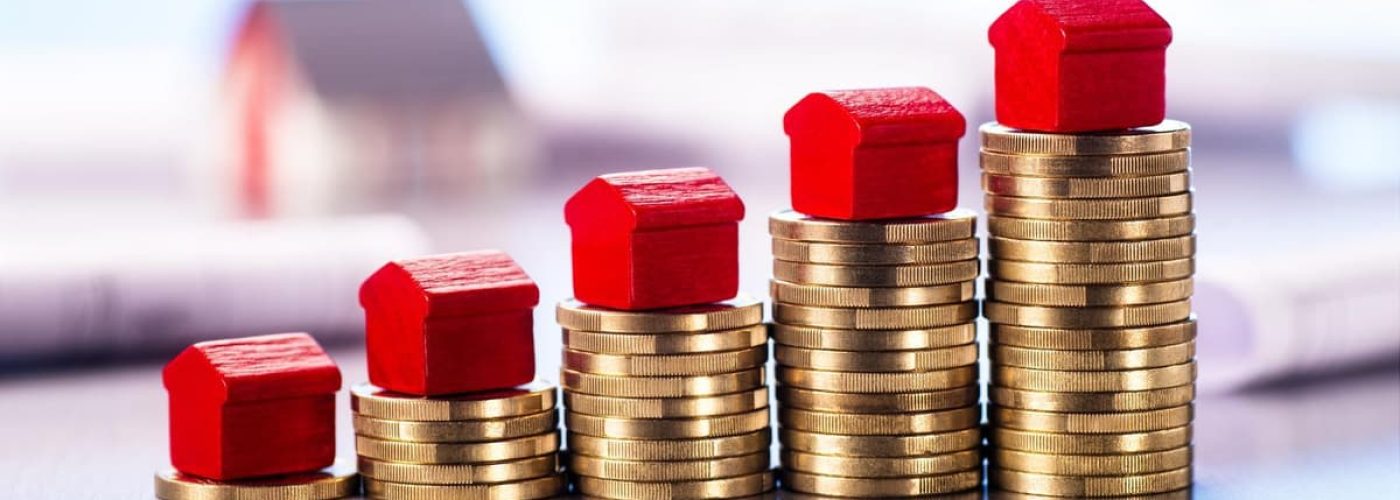Over the last year, the Bank of England has attempted to curb rising inflation through a series of interest rate hikes. The theory behind this is simple: when interest rates are higher, people are more incentivised to save than to spend. This dampens demand, and therefore pushes down prices.
We’ve seen this in the property market, with the average price of a house sliding from a peak of just under £300,000 last summer. This is just the latest downward trend in a market that has been rising relentlessly since the 70s.
If we look at the inflation-adjusted price of property over time, we see an overall upward trend. In today’s money, the average price of a home at some points in the 70s was just £100,000.
The rising cost of building
The construction sector is facing the effects of inflation, much like every other part of the UK economy. But there are special concerns to weigh, here. The rising cost of fuel makes it more difficult to get materials and equipment to the building site. What’s more, the price of certain kinds of skilled labour is going up. All these costs must ultimately be passed to the person paying for the building – and perhaps the people who subsequently buy the property from them.
The effects of second-home ownership
You might suppose that owning a second home might help to drive up property prices. After all, when one person owns two properties, there’s one less property available for everyone else to live in.
Of course, there’s a built-in penalty to owning a second home that’s uninhabited. The homeowner must foot the bill for things like maintenance and mortgage payments. Providing the space for a tenant, therefore, is a financially sensible thing to do.
It’s also worth noting that the effects of second homes in the city are different from those of second homes in the countryside. A holiday home or lodge in a rural location will tend to provide a place for people to stay when travelling, without contributing to urban house-price inflation. Plus, these homes tend to be fairly reasonably priced, and so within the reach of lots of potential buyers – not just extraordinarily wealthy ones.
Will prices come down in 2023?
According to most estimates, house prices will indeed continue to fall throughout the year to come. The extent of the fall varies depending on who is being asked. Lloyds and Halifax are betting on an 8% fall, while Zoopla puts it at closer to 5%. The Office for Budget Responsibility, which provides the basis for the Exchequer’s decisions, thinks a 9% fall over the next two years is likely.
These predictions hinges on several factors, but all of them are related to the interest rates set by the Bank of England. This rate, of course, is set according to world events – which might move suddenly in just about any direction!
Building, Design & Construction Magazine | The Choice of Industry Professionals





